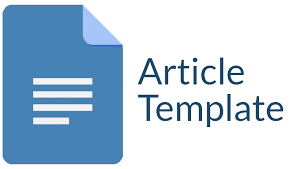EFEKTIVITAS PELAKSANAAN PROGRAM SEMBAKO SELAMA PANDEMI COVID-19 (STUDI DI DESA KARANGWUNGU LOR KECAMATAN LAREN KABUPATEN LAMONGAN)
DOI:
https://doi.org/10.26740/publika.v10n3.p819-834Keywords:
Poverty, Covid-19, Basic Food ProgramAbstract
Kemiskinan merupakan hal yang masih menjadi permasalahan besar di Indonesia, ditambah dengan adanya pandemi Covid-19 yang semakin memperparah kondisi kemiskinan di Indonesia. Untuk menanggulangi hal tersebut, salah satu upaya yang dilakukan adalah dengan melakukan perluasan program BPNT (Bantuan Pangan Non Tunai) yang kini ditransformasikan menjadi Program Sembako untuk memenuhi kebutuhan pangan dan gizi masyarakat dengan mengurangi beban pengeluaran rumah tangga masyarakat miskin. Desa Karangwungu Lor merupakan salah satu desa yang mendapatkan bantuan Program Sembako namun terdapat permasalahan terkait pelaksanaan Program Sembako yang menimbulkan berbagai reaksi dari masyarakat sekitar, hal tersebutlah yang mendasari peneliti tertarik untuk melakukan penelitian dengan tujuan untuk mengetahui apakah pelaksanaan Program Sembako yang telah dilaksanakan selama pandemi Covid-19 di Desa Karangwungu Lor tersebut sudah berjalan dengan efektif atau belum. Penelitian ini menggunakan metode penelitian kualitatif jenis deskriptif dengan fokus penelitian menggunakan pengukuran efektivitas meliputi pemahaman program, tepat sasaran, tepat waktu, tercapainya tujuan dan perubahan nyata. Berdasarkan penelitian didapatkan hasil pengukuran efektivitas pelaksanaan Program Sembako di Desa Karangwungu Lor Kecamatan Laren Kabupaten Lamongan mengacu pada indikator efektivitas program tersebut dapat disimpulkan masih belum efektif dan masih perlu adanya peran pemerintah untuk dapat memperbaiki kualitas pelaksanaan Program Sembako di Desa Karangwungu Lor terutama dalam unsur pemahaman program, tepat sasaran, tepat waktu, dan ketercapaian tujuan.
Kata kunci: Kemiskinan, Covid-19, Program Sembako.
Poverty is still a big problem in Indonesia, coupled with the Covid-19 pandemic which is increasingly exacerbating the conditions of poverty in Indonesia. To overcome this, one of the efforts made is by expanding the BPNT Program (Non-Cash Food Assistance) which is now being transformed into the Sembako Program to meet the food and nutritional needs of the community by reducing the burden of household expenses for the poor. Karangwungu Lor Village is one of the villages that received assistance from the Sembako Program but there were problems related to the implementation of the Sembako Program which caused various reactions from the surrounding community, this is what underlies researchers interested in conducting research with the aim of knowing whether the implementation of the Sembako Program has been carried out during the Covid pandemic. -19 in Karangwungu Lor Village has been running effectively or not. This study uses a descriptive qualitative research method with a research focus using effectiveness measurements including program understanding, right on target, on time, achieving goals and real changes. Based on the research, it was found that the results of measuring the effectiveness of the implementation of the Basic Food Program in Karangwungu Lor Village, Laren District, Lamongan Regency Referring to the program effectiveness indicators, it can be concluded that it was still not effective and there was still a need for the role of the government to be able to improve the quality of the implementation of the Basic Food Program in Karangwungu Lor Village, especially in terms of program understanding. , right on target, on time, and the achievement of goals.
Keywords: Poverty, Covid-19, Basic Food Program.
Downloads
 Abstract views: 361
,
Abstract views: 361
, PDF Downloads: 700
PDF Downloads: 700





